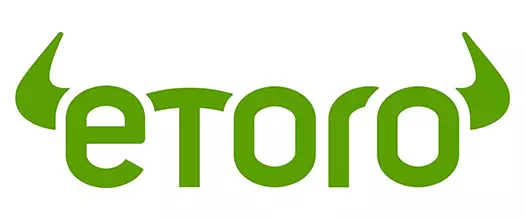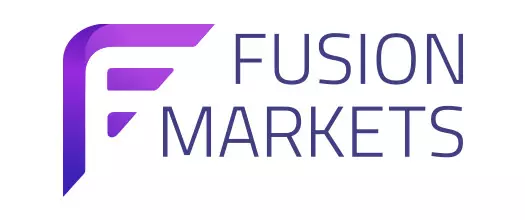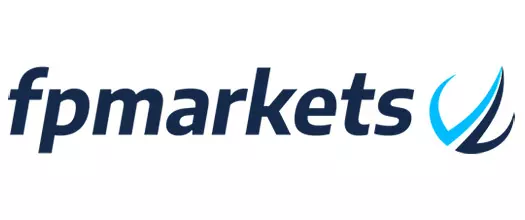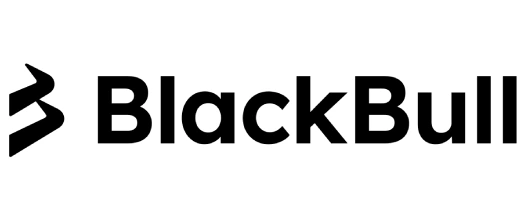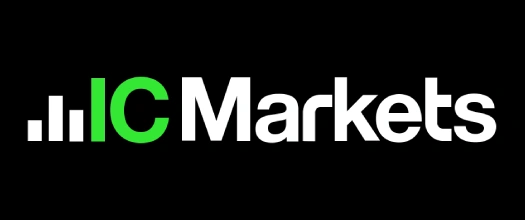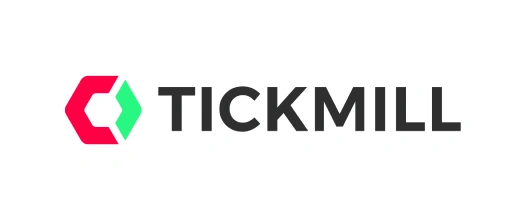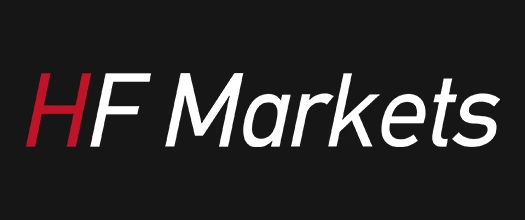- Jump to:
- Main Features of the Best FSA Forex Brokers
- Financial Services Authority of the Seychelles
- FSA’s Responsibilities
- Guidelines FSA Brokers Need to Comply With
- Customer Protection
Because forex is a global market, it is crucial to have various regulators monitoring the integrity of financial markets worldwide. While authorities such as ASIC, FCA and CySEC are known for their stricter approach to Forex regulation, organizations like the Financial Services Authority of Seychelles (FSA) offer more freedom while still overseeing the sector.
 Plus500 USThis content applies only to Plus500 US and clients from the United States. Trading futures involves the risk of loss.
Plus500 USThis content applies only to Plus500 US and clients from the United States. Trading futures involves the risk of loss. eToro50% of retail investor accounts lose money
eToro50% of retail investor accounts lose money Fusion Markets74-89% of retail's CFD accounts lose money
Fusion Markets74-89% of retail's CFD accounts lose money FP Markets73.85% of retail investor accounts lose money
FP Markets73.85% of retail investor accounts lose money BlackBull MarketsTrading leveraged products is risky
BlackBull MarketsTrading leveraged products is risky Eightcap59.57% of retail investor accounts lose money when trading CFDs with this provider.
Eightcap59.57% of retail investor accounts lose money when trading CFDs with this provider. IC Markets70.64% of retail investor accounts lose money when trading CFDs with this provider.
IC Markets70.64% of retail investor accounts lose money when trading CFDs with this provider. Tickmill70% of retail investor accounts lose money
Tickmill70% of retail investor accounts lose money HFM
HFM
Our team has thoroughly evaluated all brokers listed below using TradingPedia’s exclusive methodology.
Main Features of the Best FSA Forex Brokers
- Brand
- Trading platforms
- Minimum deposit
- Regulations
- Trading instruments
- Spreads
- Leverage for Forex CFDs
- Leverage for Crypto CFDs
- Leverage for Indices CFDs
- Deposit methods
- Withdrawal Methods
- Commission per Lot
- Contact details
Financial Services Authority of the Seychelles
The Financial Services Authority (FSA) is an independent organization that began operations after it was established under the Financial Services Authority Act 2013. The body is responsible for regulating non-bank financial service providers, including Forex brokers.
Forex brokers who wish to gain access to the financial market in Seychelles need to obtain an FSA license. Depending on the type of business they intend to provide, companies can apply for four different types of FSA operational licenses:
- Dealer license – This form of license authorizes the buying and selling of financial instruments on behalf of the provider’s clients. This license covers activities such as trading, brokerage, and market-making services.
- Investment advisor license – This license allows the provision of investment advice, which also includes Forex strategies and trading insights.
- Specially Licensed Company license (CSL) – This license enables the provision of a variety of operations, including Forex trading.
- Commercial Company license (IBC) – This license is suitable for Forex companies that provide a more flexible model of operation for different international activities.
The requirements that license applicants must meet are described in the Seychelles Special Licenses for Seychelles Companies Act 2003. Even after a brokerage company has received FSA approval, it must continue to adhere to the standards for proper brokerage operations. Requirements such as mandatory operational capital, customer-protection measures, and other conditions that licensed brokers must meet are set out in the Securities Act 2007.
One reason Seychelles is a preferred jurisdiction for many Forex brokers seeking legal access to multiple financial markets is the relatively lax tax system, which encourages foreign investment. Financial service providers licensed by the FSA are not required to pay capital-gains tax, corporate tax, or withholding tax—levies that internationally regulated businesses typically must shoulder.
Another notable feature of Seychelles’ financial-services regulations is the low reporting threshold, which enables FSA brokers to operate with a relatively light administrative burden. Despite the lenient operational requirements, the FSA still imposes strict customer-protection rules, demanding rigorous protection of clients’ confidentiality and privacy.
The FSA also offers a licensing process that is simple, quick, and easy to follow. Because of the reasonable operational requirements, many brokerage companies are eligible to operate in Seychelles and maintain their legal status in the Forex sector.
In addition to the aforementioned pieces of legislation that form the regulatory framework for financial service providers operating in Seychelles, the following legal documents are also applicable to Forex brokers licensed by the FSA:
- Securities (Licensing and Market Conduct) Regulations 2008
- Anti-Money Laundering and Countering the Financing of Terrorism Act 2020
- Seychelles International Business Companies Act 2016
- Business Tax (Amendment) Act 2018
FSA’s Responsibilities
In addition to being the official regulator licensing financial service providers in Seychelles, the FSA must also monitor the local financial market, ensuring its integrity and maintaining a fair yet competitive trading environment. According to the Financial Services Act of 2013, the FSA has the following responsibilities:
- Licensing brokers and other non-bank entities that wish to operate in Seychelles.
- Regulating licensed entities in accordance with the Financial Services Act 2013, and monitoring the operations of other financial service providers that conduct business from within Seychelles.
- Administering the registry legislation.
- Developing an appropriate legislative framework that ensures the effective implementation of financial-services legislation.
- Taking the measures required to inform and educate the general public on topics related to FSA operations and any matters concerning financial service providers.
- Taking appropriate actions against individuals conducting unauthorized financial-services businesses.
Guidelines FSA Brokers Need to Comply With
To be eligible to operate under an FSA license, Forex brokers must meet several conditions to receive the authority’s approval. Moreover, licensed entities must abide by FSA regulatory measures to ensure a safe and fair trading environment that is equally favorable to traders and financial service providers in Seychelles.
To operate in Seychelles, Forex brokers must meet the following requirements:
- Obtain appropriate license: Whether it is a Securities Dealer license or another license model, Forex brokers must obtain an FSA license to operate in Seychelles.
- Adopt investor-protection measures: Brokers must provide trading conditions that ensure integrity and transparency. Investor-protection tools must be adopted to guarantee high operational standards.
- Comply with AML requirements: Licensed brokers must implement strict customer due-diligence practices. Brokers must also report any suspicious activities to the regulator and keep comprehensive records for inspection.
- Meet capital and other operational requirements: Brokers applying for an FSA license must hold a specific minimum level of operational capital. Licensed entities are subject to regular audits and compliance checks. To obtain an FSA license, brokers must complete several steps during the license-application process:
- Establish a local company: To be eligible to apply for an FSA license, companies must have a local entity established in Seychelles. Businesses may register as an IBC (International Business Company), a CSL (Specially Licensed Company), or an LLC (Limited Liability Company).
- Maintain operational capital: A Securities Dealer license requires starting capital of between 660,000 SCR (about $45,000) and more than 1.3 million SCR (about $90,000). The exact amount depends on the type of services provided by the entity.
- Pay licensing fees: Applicants must pay licensing fees, the amount of which depends on the type of license and the scope of services they plan to provide.
- Ensure compliance with FSA regulations: Personnel in key positions such as directors and managers must have clean criminal records and demonstrate experience in the relevant financial sector. Risk-management and compliance policies must be adopted to ensure proper operations. An AML officer must be appointed, and effective procedures put in place.
- Submit the correct documents: These include a detailed business plan, risk-assessment strategies, an AML/CFT policy document, a plan for business conduct, evidence of operational capital, and other relevant materials required by the FSA during the application process.
Customer Protection
The FSA has established strict client-protection measures that must be adopted by every financial service provider licensed to operate in Seychelles. Forex brokers approved by the FSA are required to meet the following client-protection conditions:
- Brokers must be fully transparent and disclose all costs of trading, including spreads, commissions, financing fees, and other surcharges related to the trading services offered to their clients.
- Clients should receive clear warnings about the high risks associated with trading CFD products.
- Segregation of funds is required, ensuring client funds are kept separate from the operating funds of the entity.
- Licensed brokers must provide an effective system for processing and resolving customer complaints.
- Licensees must fully comply with the FSA’s data-protection requirements, guaranteeing the safety of their customers’ sensitive and financial information.
While some FSA-regulated brokers might offer retail clients negative balance protection, this is not a specific requirement imposed by the regulator in Seychelles. Therefore, traders should exercise caution when choosing a broker for their trading activities, ensuring they select a brand with additional customer-protection features.

